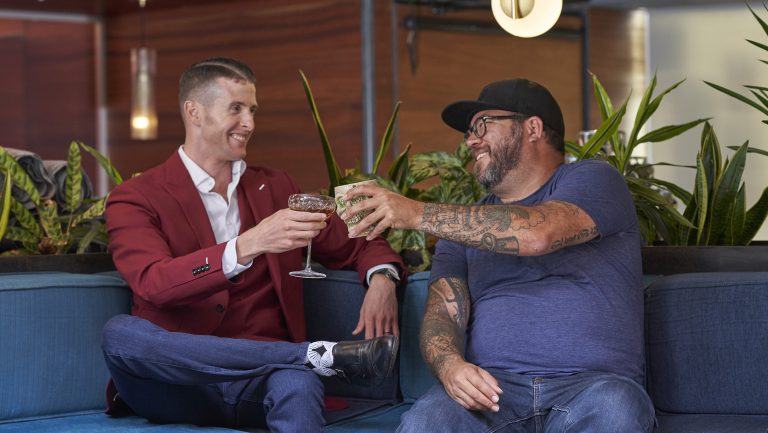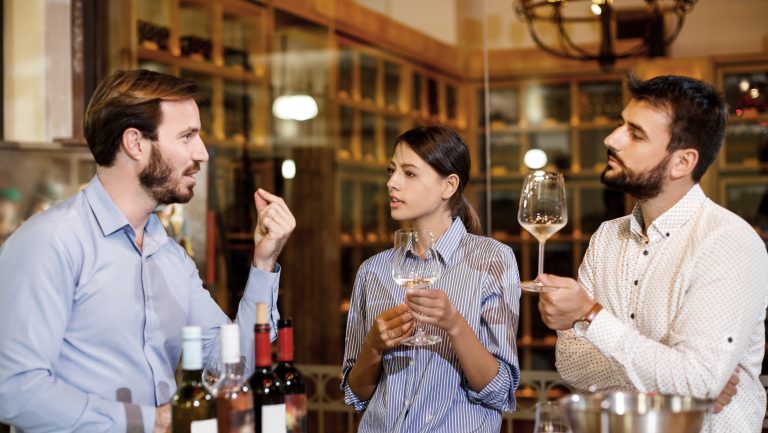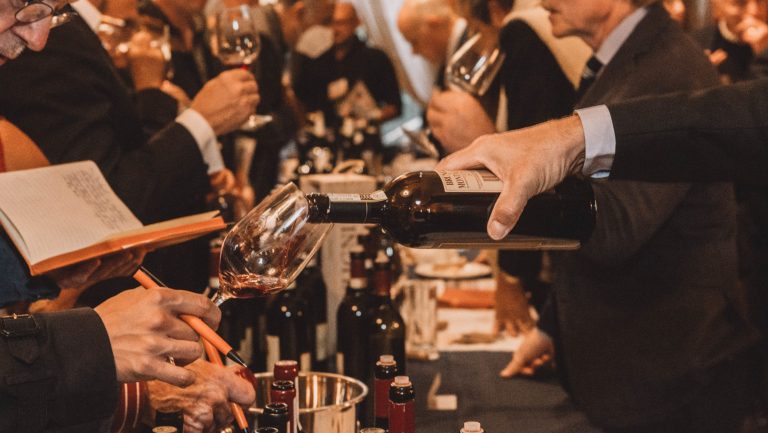If you own an beverage alcohol production or retail facility, you’ve undoubtedly looked at your insurance policy in recent weeks or months and may have learned, tragically, that it doesn’t cover virus-related business disruptions.
In addition to viruses, there are other exclusions, and many insurers nationwide are not compensating businesses that have incurred devastating losses due to civil authority shutdowns such as shelter-in-place orders. The French Laundry owner Thomas Keller recently formed a non-profit organization called Business Insurance Group that is spearheading a class-action lawsuit and a movement within the restaurant industry to sue insurance companies for coronavirus-related closure benefits, as are many other businesses across the country. States like New Jersey, New York, Pennsylvania, Ohio, and Massachusetts are considering bills to force insurance companies to pay out claims to any company that has business interruption insurance that covers full or partial closures caused by loss of use or occupancy.
While business owners await the outcomes, there are two actions to take immediately, says Rachel Grieder, vice president of the Alcohol and Brewery Insurance Division of CedarBrew Insurance Agency in Flemington, New Jersey.

Don’t miss the latest drinks industry news and insights. Sign up for our award-winning newsletters and get insider intel, resources, and trends delivered to your inbox every week.
First, file a claim for your business losses even though you can expect to be denied compensation. You may need to show your denial to postpone payment of other bills. Second, says Grieder, use this time to review your existing policy and shop for coverage that can better protect your business in future crises as well as more ordinary risks.
SevenFifty Daily spoke to insurance brokers and business owners to find out the most common mistakes brewers, distillers, and on-premise licensees make when securing insurance policies—and how to avoid them in the future.
Be Honest About Your Valuations
It can be tempting to let an agent “do you a favor” by undervaluing your sales or property values to save on premiums. Grieder says not only is this illegal, but it also won’t give you what you need when you need it. “If a brewer filed a claim where they needed to submit sales figures to make them ‘whole’ and they submitted $250,000 in taproom sales but had originally applied for coverage under the guise of just $100,000 in sales, what is that owner going to do? Be out $150,000?” she says.
Not to mention, Grieder adds, your insurance carrier could charge you the difference between your reported and actual sales and property values if an audit shows you’ve under-reported.
Furthermore, says Brian Boak, a former brewery owner and current risk advisor for Boaks Advisors in Wayne, New Jersey, “Make sure your property limit and build-out coverage is equal to what it would cost to replace everything at full cost—not just what you paid.” Include labor costs and think seriously about specifically insuring your equipment against leaks and other damage, Boak adds.
Don’t Skimp on Liquor and Accident Liability
Insurance agents report they are shocked at how few businesses that serve alcohol have adequate liquor and/or accident liability policies. On-premise operators are overwhelmingly held responsible for any patron who gets in an accident after drinking at their bar, restaurant, or tasting room, even if that patron was intoxicated prior to entering. (Some carriers offer free ServSafe alcohol-service training as a perk for employees, which could lower premiums.)
“Cut corners somewhere else,” advises Paul Hyatt, owner of Skunktown Distillery in Flemington, New Jersey. “I could not see an advantage of trying to save money. You could lose a lot more.”
In the case of an accident—a trip-and-fall, for example—it pays to purchase coverage for yourself in addition to extending your coverage beyond your door. Hyatt recently bought accident insurance for a 1000-foot radius around his distillery, though he doesn’t own the property. He also added a clause that covers a patron who injures himself in a barroom-style brawl.
Buy Spoilage, Contamination, and Recall Coverage
After Tony Peck, owner of Tulsa, Oklahoma’s Dead Armadillo Craft Brewing discovered that a diastaticus contamination of his yeast had caused some beer cans to explode, he learned two things about his insurance policy quite quickly: it did, in fact, include a clause for contamination but did not cover beer that had already left the brewery.
“Once we turned in a claim we realized that in our policy there’s a difference between product that’s internal versus product that’s at the distributor versus product that’s at retail,” says Peck, who’d sent a bit of the liquid to his wholesaler just before catching the problem. “What we found in a very painful way is that we were only covered for beer still here in the building.”
Peck brought the beer back from his distributor and dumped all four batches before exhaustively scrubbing down the brewhouse. Though the incident cost him $40,000 in sales ($50,000 if you include cleaning time and products, plus $1,200 worth of discarded yeast), he received just $21,000 from his carrier.
Broaden Your ‘Loss of Business Income’ Clause
Whether or not any entrepreneur ever sees insurance benefits from coronavirus closures, the pandemic is raising awareness that loss of business coverage can (under other circumstances) prove beneficial.
If one day you have to temporarily shut down because of, say, a lightning strike to your building, you can collect disbursements for payroll and other expenses, and insurance companies offer a lot of options here. As business owners in California have learned from successive wildfires and planned power outages, it’s possible to purchase riders that insure financial loss from damage to property you don’t own—such as falling electrical lines on your street—as well as universal government orders to halt operations.
Though your primary insurance company may not cover fires in California or hurricanes in Florida, you might want to protect yourself from these natural or man-made disasters by purchasing additional insurance policies from other carriers.
In 2017, Frank Chivas, who owns 10 restaurant-bars in and around Clearwater, Florida, instructed his broker to find him what’s colloquially called a “wind package” to supplement his primary insurance, which did not cover wind damage because of his hurricane-prone locations. It brings Chivas priceless peace of mind, despite costing three times as much as a similar package for a restaurant in a non-wind-prone or coastal location.
“I self-insured until last year, when [Hurricane] Irma came through,” he says. “Even though it changed course and missed me, people said I needed to buy wind insurance,” so he did.
Another potential problem to consider: Covering your company in the event that one of your primary suppliers or manufacturers goes out of business and you can’t meet ordinary revenue projections.
Don’t Drive Without Complete Auto Insurance
It’s critical to purchase auto coverage for any sales or delivery staff who customarily uses their own car to perform their job duties, yet a surprising number of businesses do without.
Brian Boak stressed the importance of this at his weekly Brewers Roundtable educational forum recently. “A few of the members said, ‘Uh-oh, I have to call my insurance broker. Right now,’” he recalls.
Far fewer are the business owners who purchase auto coverage for employees who may occasionally drive their own vehicle, or rent one, in the course of performing a one-off work task. During shelter-in-place orders, that applies to many in-house employees who are now delivering alcohol or food.
This could even apply to a friend of the owner who gets into a fender-bender using her car to perform the favor of running a quick errand or driving herself to volunteer to pour at a festival.
When purchasing this kind of coverage, Boak says, don’t forget to include yourself in the policy, in the event you crash your own car—or a rental—driving to an event or making a delivery.

Dispatch
Sign up for our award-winning newsletter
Don’t miss the latest drinks industry news and insights—delivered to your inbox every week.
Tara Nurin is the beer and spirits contributor to Forbes, the drinks columnist for New Jersey Monthly, a cohost of the What’s on Tap TV show, and a writer for publications like Food & Wine, Wine Enthusiast, Vice Munchies, and VinePair. She is a BJCP-certified judge, teaches a for-credit university beer class, and leads beer seminars for institutions like the Smithsonian. The Camden, New Jersey, homeowner has won two first-place awards from the North American Guild of Beer Writers, founded the state’s first beer education group for women, and volunteers as the archivist for the Pink Boots Society.







